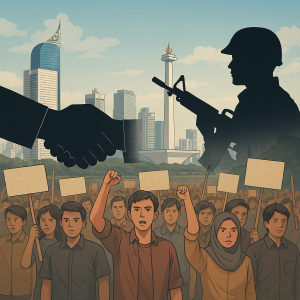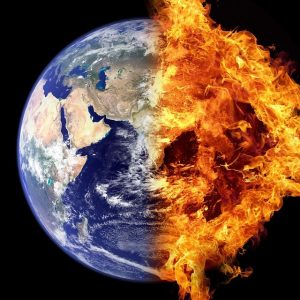トランプ大統領就任で政治・経済がコメディ化?築いてきた「グローバリゼーション」の終焉か
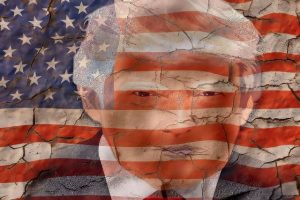 イメージ
イメージ
トランプ大統領就任で政治・経済がコメディ化?
築いてきた「グローバリゼーション」の終焉か?
2025年の今、トランプ元大統領の再登場が話題になっていますが、
思い返せば、彼が初めて大統領に就任した当時、
世界はまるで「USA流コメディ、あるいはパロディ」
のような展開を迎えていました。
トランプ氏の掲げた「MAKE AMERICA GREAT AGAIN(アメリカを再び偉大に)」
というスローガンに象徴されるように、自国優先主義を鮮明にした政策が
次々に打ち出され、従来の政治・経済の常識が覆されていきました。
政策は朝令暮改、発言は二転三転、世界中がその動向に振り回されるという、
かつてない状況。
世界一の超大国のトップがここまで自由奔放に動けば、
それはもう「現代の王様」「独裁者」とも言えるかもしれません。
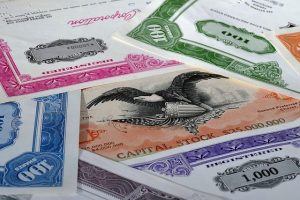 イメージ
イメージ
アメリカへの憧れ、そして気づいた矛盾
私は長年、アメリカに憧れ、仕事でもプライベートでも何度も訪れました。
約30年前には、マンハッタンの高層マンションに暮らしていた経験もあります。
その頃を思い返すと、いくつか忘れられないエピソードがあります。
1.NY・フロリダでのメディア関係者との会話
ある時、ニューヨークやフロリダでメディア関係者と話をしていた際、
アメリカ人の女性ディレクターがこんなことを言っていました。
「アメリカが“世界の警察官”になることなんて誰も望んでいない。
誰がそんなこと言ってるの?
少なくとも私の周りにはいないし、莫大な費用もかかる。」
この言葉は、アメリカ国内でも「グローバリゼーション」や
「国際的役割」への疑問が根底にあることを示していたのかもしれません。
2.グローバリゼーションに染まっていた私
当時はどのメディアも「グローバリゼーション万歳」といった論調でした。
私も「アメリカが世界の中心」「世界のリーダーは多少の犠牲を払ってでも
平和に貢献すべきだ」という考えに、ある意味“洗脳”されていたのかもしれません。
その一方で、中国が改革開放政策を進め、「一帯一路」構想とともに経済力・
軍事力を強化していく様子も目の当たりにしてきました。
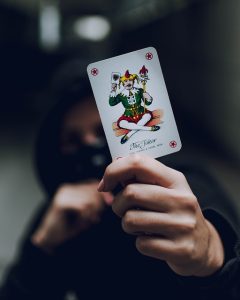 イメージ
イメージ
トランプ登場で、世界の流れが逆転?
そんな中で登場したのが、ドナルド・トランプという異色の大統領。
彼は、グローバリゼーションや多国間主義ではなく、
反中国、そしてアメリカ国内の貧困層への支持を背景とした
「ポピュリズム」の旗手として現れました。
不動産王として知られる富裕層出身の彼が、貧困層の代弁者として
支持を集めるというのも皮肉な話ですが、
実は私がマンハッタンに住んでいた1990年代初頭、
トランプ氏は不況で不動産ビジネスに失敗し、
地元でも「あまり話題にすらならない存在」でした。
住んでいた部屋の窓からは、あの黄金に輝くトランプタワーがよく見えていましたが、
まさかその人物が後にアメリカ大統領となるとは思いもしませんでした。
アメリカの東西文化対立とエスタブリッシュメント
私がアメリカで特に強く感じたのは、「東部の保守層」と
「西部のリベラル層」の対立構造です。
東部:ハーバード、コロンビア、MITなどの名門大学を中心に、
エリート層が古い価値観と歴史を軸にアメリカを動かしてきた。
西部:カリフォルニア大学やスタンフォードなど、
自由な空気を持つリベラルな文化が主流。
バークレーやUCLAでは、昼間からお酒を飲んで騒ぐ学生や、
芝生で昼寝する姿が日常茶飯事。
一方で、ハーバードやコロンビアでは、真面目で静かな学生が多く、
まさに「違う国」のようでした。
そうした価値観の違いが、後の社会構造や政治意識にも大きく影響しているように感じます。
世界の犠牲の上に立つリーダー像、そして日本は?
冷戦期、アメリカは「世界のリーダー」としての自覚を持ち、
理想に燃えて国を動かしてきました。
しかしその裏で、一般労働者や底辺層は犠牲になってきたのも事実。
そして、その恩恵を最も受けたのは、日本だったのかもしれません。
では、これからのグローバリゼーションと日本は?
続きは次回に!
 image
image
Politics and Economy Turned into Comedy with Trump’s Inauguration?
Is This the End of the Globalization We’ve Built?
As of 2025, former President Trump’s reemergence is once again making headlines.
Looking back, when he first took office,
the world felt like it had entered a new era of “USA-style comedy or parody.”
True to his slogan, “MAKE AMERICA GREAT AGAIN,”
Trump introduced a series of policies that prioritized American interests above all else,
overturning the conventional norms of politics and economics.
Policies changed by the day, statements constantly shifted,
and the world was thrown into unprecedented confusion trying to keep up.
When the leader of the world’s most powerful nation acts with
such unrestrained freedom,
it’s no exaggeration to call him a “modern-day king” or even a “dictator.”
 image
image
Admiration for America—and the Contradictions I Discovered
For many years, I admired America.
I visited frequently for both business and personal reasons.
About 30 years ago, I even lived in a high-rise apartment in Manhattan.
When I look back on those days, there are a few unforgettable episodes:
Conversations with Media Professionals in New York and Florida
At one point, while talking with media professionals in New York and Florida,
a female American director said to me:
“Nobody wants America to be the world’s police force.
Who even says that?
At least no one around me. Plus, it costs a fortune.”
That comment may have reflected the growing doubt within the U.S.
about globalization and the country’s international role.
My Immersion in Globalization
At the time, nearly all media took a pro-globalization stance.
I too may have been “brainwashed,” in a way—believing that
“America is the center of the world,” and
that “a global leader should contribute to peace even at
the cost of some sacrifice.”
At the same time,
I witnessed China’s steady progress through its reform and
opening-up policies, and its growing economic and military power
under the Belt and Road Initiative.
 image
image
Trump’s Rise: A Reversal of Global Trends?
Amid all this, a most unconventional figure emerged—Donald Trump.
Rather than supporting globalization or multilateralism,
Trump positioned himself as a populist icon,
with strong anti-China rhetoric and backing from America’s working class and
impoverished communities.
It’s an ironic twist: a wealthy real estate mogul became the voice of the poor.
In fact, when I lived in Manhattan in the early 1990s,
Trump had just failed in real estate due to a recession and
was hardly talked about even locally.
From my apartment window, I could see the glittering Trump Tower—but
never did I imagine that the man behind
it would one day become President of the United States.
Cultural Clashes in the U.S.: East vs. West and the Establishment
One thing I strongly felt while living in the U.S.
was the clear divide between the conservative East Coast and
the liberal West Coast:
East Coast: Anchored by elite institutions like Harvard, Columbia, and MIT,
where traditional values and historical perspectives guided
the country’s leadership.
West Coast: Dominated by the free-spirited,
liberal cultures of schools like the University of California and Stanford.
At Berkeley and UCLA, it was common to see students drinking during the day or
napping on the lawn.
In contrast, places like Harvard and Columbia had quiet,
serious students—almost like a different country entirely.
This clash of values seems to have deeply influenced
American social structures and
political consciousness.
America’s Leadership Built on Sacrifice—and Japan’s Role?
During the Cold War, America acted as a global leader with
a sense of mission and idealism.
But beneath that, the sacrifices of ordinary laborers and
the working class were real.
And perhaps the country that benefited most from that
global leadership… was Japan.
So, What Lies Ahead for Globalization—and for Japan?
To be continued!
